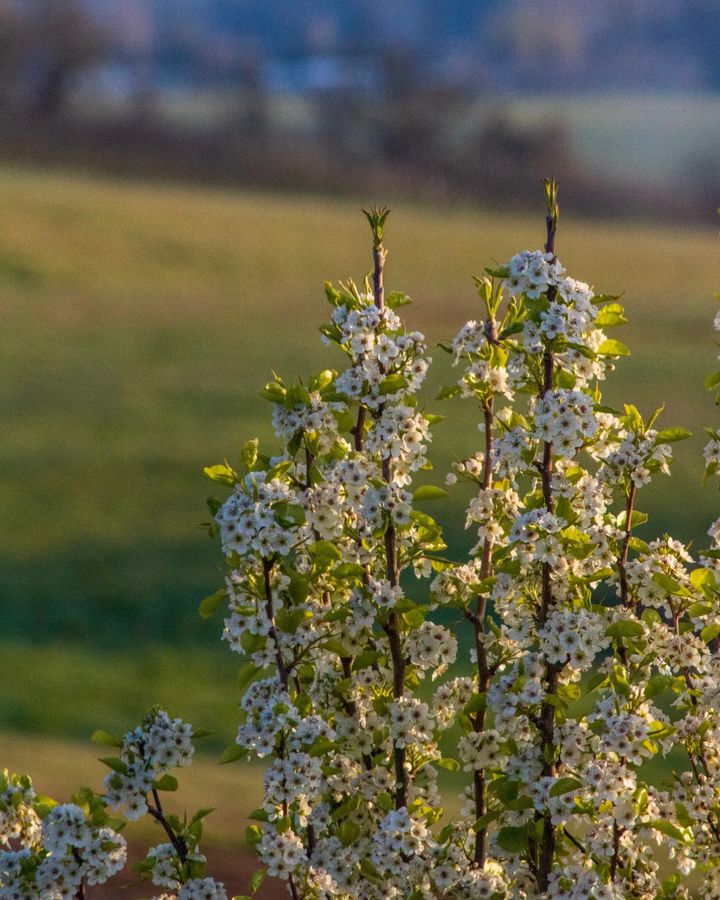Bradford Pears trees were once thought to be entirely sterile, but recent studies show they can produce fruit, albeit smaller and less abundant, without cross-pollination.
Birds love to eat Bradford Pears fruits and disperse seeds everywhere, aiding plants’ invasiveness.
Thus, read on till the end to learn the reproduction and fruiting dynamics of the Bradford Pear tree so you know what to do with them.
Table of Contents Show
How Do Bradford Pears Reproduce?
Bradford Pear is a fast-growing cultivar of the Callery Pear native to China and Taiwan.
Due to its rapid growth rate, the Bradford Pear tree is considered invasive in many regions.
Though self-infertile, the plant can reproduce vigorously via cross-pollination and suckering.
Likewise, they can spread via suckering and grow from the roots of an existing mother plant.
Do All Bradford Pear Trees Produce Fruit?
The Bradford Pear trees cannot readily pollinate themselves, so they rely on other compatible plants to produce fruit.
Thus, they need compatible plant partners near them to cross-pollinate and produce fruits.
So all Bradford Pear trees do not produce fruit. Only a few trees with ideal conditions for fruiting may bear fruit.
Here are the main factors besides cross-pollination that affect fruiting in Bradford Pear trees.
1. Plant Age
The younger Bradford Pear trees do not produce fruit as they lack good root establishment.
And it typically takes 5 to 7 years for Bradford Pear trees to produce small pea-sized round pears.
Thus, if the Bradford Pears do not produce fruit, it could mean they are too young for fruiting.
2. Pollinator Activity
Birds, bees, and beetles are the main pollinating agents that aid cross-pollination in Bradford Pear trees.
Likewise, improper weather conditions for successful pollination can hamper fruiting in these trees.
3. Tree Health and Vigor
For proper flowering and fruiting, a Bradford Pears tree must be healthy and disease free.
And diseases like Fire blight can hinder plant growth and eventually inhibit them from producing fruits.

Likewise, pest infestation can greatly discourage the plant from flowering and fruiting.
So, only healthy, older Bradford Pears trees can produce fruit or bear pear.
4. Environmental Conditions
To begin flowering, Bradford Pears trees require adequate chilling time with temperatures below 45°F.
Likewise, the favorable weather condition is crucial for flowering and fruiting.
Thus, adverse weather conditions can inhibit Bradford Pears trees from producing fruit.
Is Bradford Pear Fruit Edible?
With the arrival of Spring, the Bradford Pears trees produce fragrant flowers in April and May.
These white flowers last about two weeks and then begin to produce tiny pears.
Furthermore, the fruit or pears of Bradford Pears trees has a bland taste and unappetizing texture.
Meanwhile, Bradford Pear fruit is poisonous to pets like dogs and cats.
The seeds in the Bradford Pear fruit contain harmful toxins that can cause the release of Cyanide when ingested in pets.
So, remember to throw away fallen fruits somewhere safe to avoid accidental ingestion.
If you suspect your dog is eating those hard fruits, contact a veterinarian or seek help from these hotlines.
Editor’s Note
Very Invasive, So Opt For Other Alternatives!
The Bradford Pears trees are invasive trees that can outrun other native plants in the surrounding area.
Thus, if you have them in your backyard, carefully remove them and instead grow other plants like Serviceberry and Flowering Dogwood.
All The Best!


